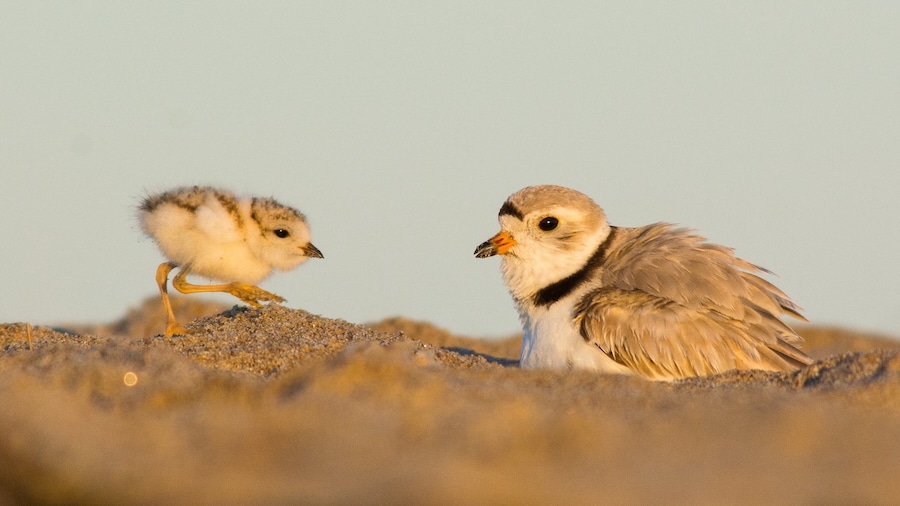
Pollinate to Prosper: Using Cross-Pollination to Increase Agriculture Yields and Conserve Forest Ecosystems
Pollinate to Prosper: Using Cross-Pollination to Increase Agriculture Yields and Conserve Forest Ecosystems
jschoshinski
Tue, 01/07/2025 – 15:53
Researchers estimate that just eight percent of Colombia’s tropical dry forests remain intact. In Colombia’s Caribbean region, a belt of tropical dry forests in hilly Montes de María is critically endangered and on the verge of disappearing. With the forests go their ability to provide crucial habitat, support livelihoods, and sequester carbon.
In addition, climate change is negatively impacting the region’s pollinators. Rising temperatures and changing weather patterns can disrupt the synchronization between plants and pollinators, leading to temporal mismatches in which pollinators emerge at different times than when crops flower. These mismatches further threaten the important forest ecosystem and the communities that depend on it for their livelihoods.
In Montes de María, José Ibañez is rebuilding one corner of the forest through beekeeping and the use of cross-pollination to improve the lives of farmers and protect the forests that remain. He learned the practice from his uncle after being displaced from his home as a teenager due to armed conflict in the area.
In 2014, José established Agroroma, an agriculture cooperative including some 100 families, in the municipality of El Carmen de Bolívar. Agroroma integrates apiculture, or beekeeping, with agriculture as a way to increase yields and quality while benefiting the environment and mitigating the effects of climate change.
“If we want to ensure there is harmony between humans, bees, and the forest, we must turn to integrated agriculture,” explained José.
Integrated pollination management has been practiced for centuries by Indigenous Peoples as well as modern farmers. It can be a powerful tool for sustainable development in the tropics that also protects pollinators and boosts family incomes. With support from the USAID-funded Land for Prosperity Activity, José gained the opportunity to spread his knowledge and research new innovations in the field.
At times, we resist change because of fear of losing what little we have. But we have to be able to integrate ancestral knowledge and the progress made by the new generations, so we can adapt to the challenges we now face due to climate change.
José Ibañez
Building Resilient Value Chains
The USAID Land for Prosperity Activity established two public-private partnerships in the honey and sesame value chains in the Colombia Caribbean. The alliances bring together more than 1,100 producers and have mobilized more than $2.7 million through public and private entities.
Agroroma bridges the honey and sesame partnerships, showing farmers how new and innovative cross-pollination tactics can increase honey and sesame yields. Even though sesame flowers can self-pollinate, bee pollination can increase sesame yields by up to one third, while the absence of bee pollinators can lead to yield declines of 60 percent. After testing it in the laboratory, José also believes that the nectar produced by the sesame flower results in higher-quality honey.
To boost pollination, USAID installed two prototype apiaries, made up of 20 “smart hives” that maintain a stable internal temperature close to the sesame crops. Cross-pollination helps increase genetic diversity, resulting in a higher quantity and better quality of seeds and more resilient plants that are better prepared to adapt to the impacts of climate change.
Image
To boost pollination, USAID has provided “smart hives” that help increase genetic diversity, resulting in higher quantity and quality yields.
Photo Credit: Ivan Bolívar for USAID/Colombia
Once the process of cross-pollination has begun, the amount of honey produced by each hive increases, and the production of sesame seeds increases too.
José Ibañez
While the cross-pollination project is still a pilot, it has already produced results that give beekeepers and farmers an opportunity to maximize yields while stabilizing ecosystems. At the same time, beekeeping and the concept of cross-pollination discourage deforestation and the clearing of land for agriculture.
For example, the farmers of Agroroma have abandoned the use of controlled burns as well as chemical pesticides and fertilizers to ensure they do not contaminate the tropical forest. The farmers who have cattle use entomopathogenic fungus as a biopesticide to control ticks and other insects without polluting their water sources, meat, or milk. In this way, they also make sure that the plants and flowers that their bees forage are clean.
These eco-friendly agriculture models are also paying off financially as they have attracted commercial buyers, such as supermarket chain Megatienda and restaurant giant Crepes & Waffles.
In short, by encouraging innovation, USAID is helping communities in the Colombian Caribbean boost their incomes, conserve tropical forests, and mitigate climate change.
Teaser Text
In Montes de María, José Ibañez is rebuilding one corner of the forest through beekeeping and the use of cross-pollination to improve the lives of farmers and protect the forests that remain.
Publish Date
Tue, 01/07/2025 – 12:00
Author(s)
Nathalia Vásquez
Hero Image
José_Ibañez.jpg
Blog Type
Blog Post
Strategic Objective
Integration
Mitigation
Region
Latin America & Caribbean
Topic
Agriculture
Climate-Resilient Agriculture
Biodiversity Conservation
Climate Change Integration
Climate Risk Management
Food Security
Indigenous Peoples and Local Communities
Land Tenure
Locally-Led Development
Mitigation
Natural Climate Solutions
Partnership
Private Sector Engagement
Country
Colombia
Sectors
Biodiversity Conservation
Agriculture and Food Systems
Show Download Link
Off





